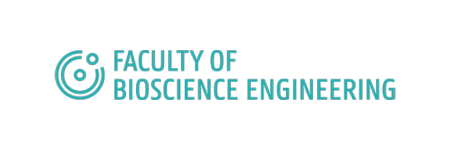Public defense of the doctoral dissertation of ir. Jolien De Paepe, a MELiSSA POMP PhD student

The Chancellor of Ghent University has the honour of inviting you to attend the public
defense of the doctoral dissertation of
ir. Jolien De Paepe
Title of the doctoral dissertation:
Urine treatment technologies for a circular future
within and beyond terrestrial boundaries
The public defense will take place on Wednesday the 14th of October 2020 at 17:00 via live-stream (link). Please select “Listen only” and do not share your video or screen. Questions can be asked via chat after the presentation.
Dissertation supervisors
Board of examiners
Abstract of the doctoral research
|
Human presence in outer Space is currently supported by a regular resupply of water and food from Earth. As this becomes impossible for long distances, deep-space exploration or space habitation will depend on regenerative life support systems (RLSS) for in-situ oxygen, water and food production and waste management. Urine recycling is of key interest in RLSS to recover water and nutrients, which can serve as a fertilizer for plants and microalgae. Urine source separation and recycling also gains attention on Earth to close and/or shorten the terrestrial nutrient cycles, which play a pivotal role in our food supply, but are currently pushed to their planetary boundaries by extensive synthetic fertilizer production and use. Urine contains many valuable compounds, but the compositional complexity of urine also presents a challenge for urine treatment and recycling. Different urine treatment trains combining biological and physicochemical processes were explored in this PhD thesis. Three main treatment steps were considered: (i) Alkalinization through chemical or electrochemical hydroxide addition to prevent urea hydrolysis during collection and storage, These novel resource-efficient urine treatment trains maximize nutrient recovery while minimizing the use of consumables which could advance nitrogen recovery on Earth and could push the development of RLSS for long-term human spaceflights. |
Brief Curriculum Vitae
|
Jolien De Paepe (°Ghent, Belgium, February 24th 1993) obtained her secondary school degree in Science-Mathematics at Sint-Bavohumaniora, Ghent in 2011. In 2016, she graduated summa cum laude as Master of Science in Bioscience Engineering, Environmental technology, at Ghent University, after which she started her joint PhD in the framework of the ambitious MELiSSA research program, led by the European Space Agency (ESA), which has as a final goal to develop a regenerative life support system for long-duration human Space missions. Her doctoral research at the Center for Microbial Ecology and Technology (CMET) explored several technologies for resource recovery from human urine. Jolien also spent six months at the MELiSSA pilot plant in the Department d’Enginyeria Química, Biològica i Ambiental of the Universitat Autònoma de Barcelona.
|
